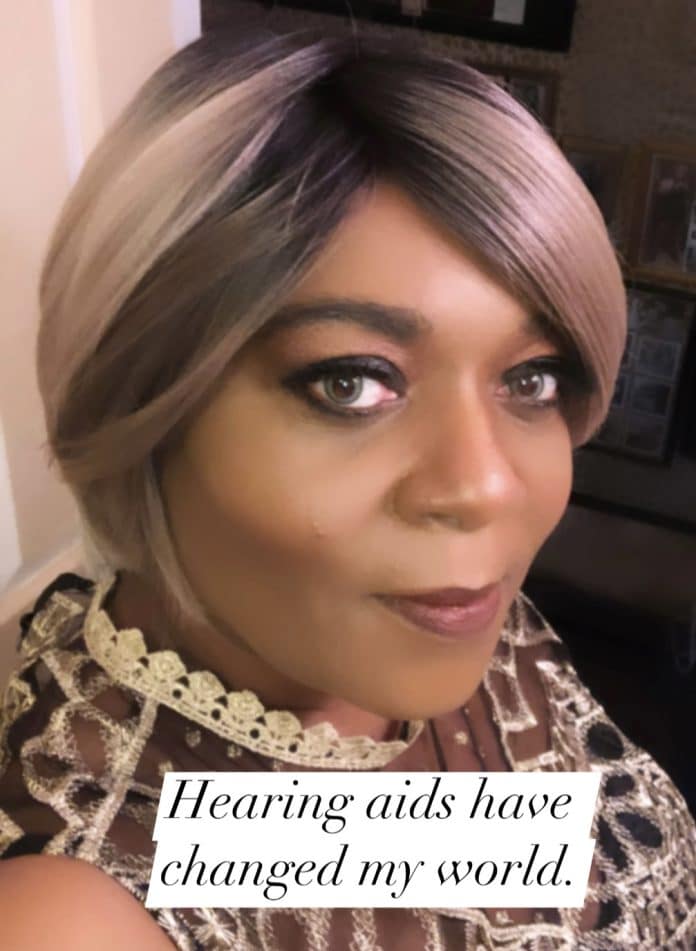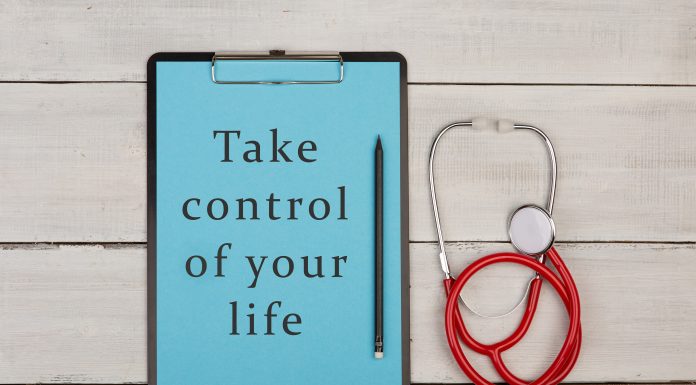About six years ago, I decided that enough was enough with constantly saying, “What, what, what?” during most, if not all, of my conversations. A year or two before my life-altering decision, I would be in my office talking to my staff or others and trying to make sense of everything they were saying.
I began believing that people in Chattanooga were just low-talkers. Not once did it ever occur to me that my hearing was decreasing. Me? Losing my hearing? No way. People need to stop low-talking.
However, once I realized that my boyfriend kept complaining about how loud the television was whenever he came over or how many times, I would say what when he asked me a question. I decided that a hearing check was a must.
I made an appointment with Beltone, and after a thorough hearing exam, I had to reconcile that I was hard of hearing or hearing impaired. Either way, I had to accept that I had a profound loss of hearing. Once I ordered my hearing aids, I spent several days preparing for my new way of life. At least there are auditory devices that would help with acceptable access to hear conversations.
Once the hearing aids were in, they were fitted and set for my hearing loss. Just like that, I could hear what I could not hear before. It was amazing. I also discovered that, with my hearing loss, female voices are more complex to discern than low-pitched male voices. My right ear has a fifty percent loss compared to my left ear.
I did not expect how loud things had become—the toilet flush, refrigerator noises, the wind blowing through the trees, and the crunching of dry leaves on the ground. Once I started wearing the hearing aids, I realized how much sound I was not hearing. My hearing was now downright scary. It took a while to get used to the change.
What all hearing people learn early in life is that their hearing is essential for sustaining relationships and life experiences, good, bad, or indifferent. Hearing allows us to differentiate people’s accents from places other than ours. Hearing allows us to laugh at a funny punchline versus a terrible one. It will enable us to hear a baby’s first laugh and cry. Hearing lets us hear your first love whisper I love you in your ear.
Although hearing loss may not abolish all the above, it can hinder a person from hearing some of the most beautiful sounds. I can attest to that.
So, what causes hearing loss? Hearing loss is more common than many realize. It can be caused by disease, genetics, too much loud noise, or aging. As the older population tends to be the highest population dealing with hearing loss, increased hearing loss continues as we age.
Many seniors avoid admitting to hearing difficulties even when their family and friends tell them it seems to be an issue. Their hearing loss will increase if they ignore the problem for too long, miss essential calls, misunderstand medical providers’ information, or become confused in emergencies. People with increasing hearing loss tend to feel socially isolated and depressed.
The National Institute of Aging (NIA) provides information about age-related hearing loss. The hearing loss related to aging is called presbycusis. It is a combination of changes to
- Blood flow and the structures of the inner ear
- Changes to the nerve of hearing
- How the brain processes speech and sounds
Presbycusis is a decreasing loss of hearing that first affects high-pitched sounds. The changes are noticed slowly over time. The most common symptoms are problems hearing soft voices, the voices of children, and talking through background noise, as well as the loss of speech clarity.
Although my loss of hearing started in my early fifties, it is most common for up to 35 percent of adults between 65 and 75 years, as well as 45 percent of adults 75 and older deal with hearing loss.
People with hearing loss who are not equipped with hearing aids will undoubtedly experience a decreased quality of life. Hearing loss has been noted to be a gateway to poor social relationships, sadness, depression, anxiety, cognitive decline, and paranoia.
Because hearing loss can take many forms, ranging from mild loss, such as issues with high-pitched sounds, to total loss, it is essential to schedule a hearing screening as soon as possible, and finding an audiologist is the best way to start.
So, that is what I did. A Licensed Hearing Specialist tested my hearing. Once I ordered my hearing aids, they arrived; they were fitted and set for my loss for each ear. Today, I am wearing my second pair of hearing aids. The first pair required batteries, which last a year. The new aids do not require batteries and are fully rechargeable. Both sets are cell phone-controlled.
Before the new hearing aids, I bought a pair online. Although I heard people better, I kept hearing my voice in the feedback. It wasn’t enjoyable, and I returned them. Then, I understood that most online or over-the-counter aids were more like amplifiers.
Since the over-the-counter sales in the last few years, the price of hearing aids has decreased. A friend told me her father’s hearing aids cost $12,000. My first set cost almost $8,000, and my new ones cost $3,500. The price is also based on the technology needed.
Unfortunately, Medicare covers the cost of hearing tests but not hearing aids. Medicaid and some private insurance may help with some coverage. The new hearing aids are smaller and come in many colors. Because my skin is brown, the hearing aids I bought are brown. They blend in well with my skin color. However, the best thing is that I can hear people better.
I recently contacted Jennifer Carson, Vice President of Marketing for Beltone Hearing Center, where I have my hearing tested and buy my hearing aids, for information to complete my article. Here is what she had to say.
Hearing loss is more about your overall health than sounds. It can affect your day-to-day lifestyle and your mental health. Hearing loss is a chronic condition that affects nearly two-thirds of adults aged 70 or older in the United States.
A recent study from John Hopkins reports that Hearing Loss is linked to Alzheimer’s/Dementia, falls, depression, diabetes, and walking problems. The report showed that 52% of people with untreated hearing loss had a greater risk of developing dementia, 41% of depression, and 30% of falls. Diabetes has also been linked to hearing loss in the nationally representative study. Hearing aid use is the most significant factor in protecting against decline.
The 10 Warning Signs of Hearing Loss
If you experience these warning signs repeatedly or in any combination, it may indicate that you have a loss of hearing:
- People mumble more frequently.
- You experience ringing in your ears.
- You often ask people to repeat themselves.
- Your family complains that you play the radio or TV too loudly.
- You no longer hear average household sounds like the faucet dripping or a doorbell ringing.
- You need help understanding a conversation in a large group or crowd.
- You need help understanding all the words in a conversation.
- You find telephone conversations increasingly difficult.
- You have trouble hearing when your back is turned to the speaker.
- You have been told you speak too loudly.
Beltone Hearing Center is celebrating 84 years of helping people hear again. We know the importance of Hearing Health and how it can benefit everyone. Total body health begins with Better Hearing Health. Beltone Hearing Centers offers a complimentary hearing evaluation; there is no need to continue struggling with your hearing loss.
Thank you, Ms. Carson, for your essential information.
Close to 4 million adults in the United States have various degrees of hearing loss. While each would benefit from hearing aids, only 1 in 5 will do so.
If you or someone you know could benefit from hearing aids and have a more meaningful quality of life, contact an audiology professional in your area. Get to know the staff and your audiologist. If you have questions, ask them. If your audiologist knows their stuff, so will you when you leave the office. I did.
My highly knowledgeable and experienced audiologists, Craig and Nick, took the time to explain the differences between various hearing aid styles, ensuring I made an informed decision.
When fitted for my hearing aids, I was equipped with more than just a device. Now, I have a tool that would transform my world. The directional microphones, designed to enhance sounds and combat noise, have allowed me to zero in on specific sounds without the distraction of background noise.
The new hearing aids are designed with your convenience in mind. They connect wirelessly to your cellphone, enabling you to stream calls and audio directly to your aids. With the user-friendly app, you can discreetly adjust the sound settings to your preference, ensuring a comfortable listening experience.
Now, I can sit on my treehouse deck and hear all the sounds of nature the way they were meant to be heard. It is beautiful.
NIH Pub. No. 97-4235, March 2016. Hearing Loss: A Common Problem for Older Adults https://www.nia.nih.gov/health/hearing-loss-common-problem-older-adults






















